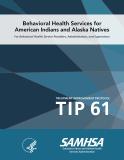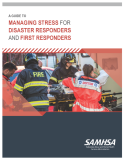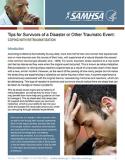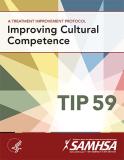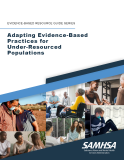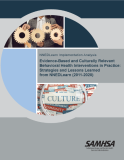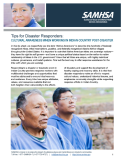
This tip sheet is a revised/updated document discussing Cultural Awareness working post disaster in Indian Country.
Units per Product
Download
Tips for Disaster Responders: Cultural Awareness When Working In Indian Country Post-Disaster
File Type: PDF
File Size: 666 KB


